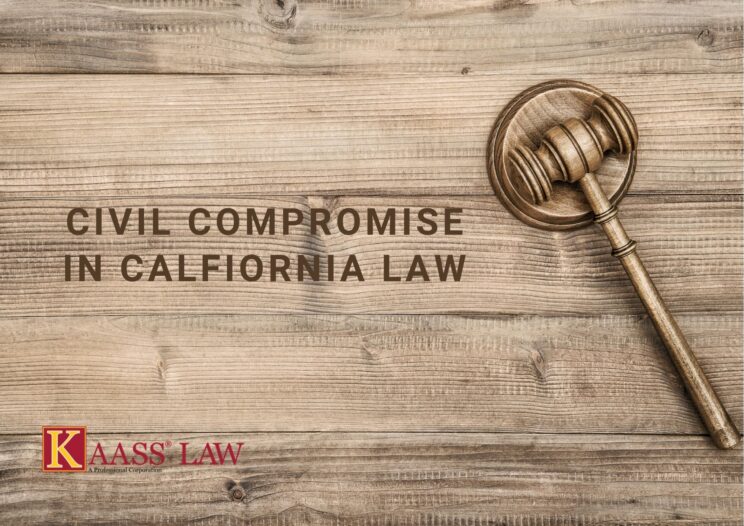Civil Compromise: California PC 1377 and PC 1378
Under California Penal Code Sections 1377 and 1378 a civil compromise is a method that allows people charged with misdemeanors to have their cases dismissed after compensating the victims for the caused damages. When the case does not involve violence and includes property damage, and the victim is cooperative, the defense can file a motion to dismiss the case after presenting proof of fully paid restitution.
Typically, as a result of a civil compromise, only misdemeanor charges can be dismissed. Felony charges are inappropriate for civil compromise since severe crimes harm and endanger and the entire community, not only the victim, and payment the compensation to the victim will not redress the harm done to the society.
Generally, civil compromise is only available when the same illegal act results both in criminal and civil liability.
Benefits of a Civil Compromise
The Benefits of Civil Compromise for the Victim:
The victim receives compensation for the damages and losses more quickly and effectively, and does not need to appear in court to testify at a trial or hearing.
The Benefits of Civil Compromise for the Defendant:
The defendant can get a full dismissal of his criminal charges and will not have a conviction on his record. The defendant will also avoid further consequences such as jail time, additional fines and fees, probation, and community service. A full dismissal of the criminal case will help the defendant to avoid immigration issues.
The Following Procedure Occurs After the Victim Is Reimbursed for the Damages:
- The victim must in person or by written declaration appear before the court where the criminal case is pending and acknowledge that he has received full compensation by the defendant for the caused damages.
- The victim must also convey that he is desirous of prosecution
- If the court is satisfied, it can order the dismissal of all criminal proceedings and discharge the defendant. The court must enter the order to discharge the defendant and the reasons for it into the record.
- Though even if the victim has been reimbursed and the judge accepts the Civil Compromise, the prosecutor can still disagree and bring criminal charges against the defendant.
The List of Offenses, Excluded From Civil Compromises:
- PC Section 1377(b): Offenses committed upon a peace officer while executing the duties of his office.
- PC Section 1377(c): Offenses committed with intent to commit a felony.
- PC Section 1377 (b): Offenses committed riotously.
- PC Sections 273.6 or 273.65: Offenses committed in violation of any court order.
- PC Section 368 and Welfare and Institutions Code 15656: Offenses committed upon an elder.
- PC Section 13700 and Family Code Section 6211(b): Offenses committed in a domestic violence matter by or on a family or household member.
- PC Sections 647.6 or 11165.6: Offenses committed upon a child.
In California Civil Compromise Is Most Effective in Dismissing the Following Charges:
- PC Section 459.5: Shoplifting
- PC Section 484(a): Petty theft
- PC Section 594: Vandalism
- PC Section 503: Embezzlement
Additional Considerations for Civil Compromise
When considering a civil settlement in California, it is important that both the defense and the alleged victim understand the legal and strategic implications. While the benefits are clear – dismissal of the case for the defendant and restitution for the victim – courts are still reluctant to do so. Defense attorneys often facilitate this process by negotiating directly with the victim or their attorney and preparing all necessary documentation to present to the court. Judges may also take into consideration the defendant’s criminal history, the nature and extent of the harm caused, and whether the defendant has shown genuine remorse and responsibility.
It is worth noting that not all jurisdictions in California treat civil compromise motions the same way. Some counties and judges are more open to such motions, especially in cases involving first-time offenders and minimal damages, while others may be more skeptical. Such differences mean that an experienced attorney can play an important role in successfully navigating the civil compromise process. Ultimately, civil compromise is a unique and potentially powerful legal tool, but it is not a guarantee. It is important to thoroughly understand its capabilities and limitations before proceeding.
Contact KAASS LAW if you or your loved one faced with this problem.

